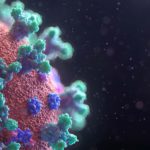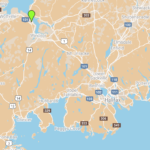Today, June 8, Nova Scotia is reporting 17 new cases of COVID-19 and 28 recoveries.
There are nine new cases in Central Zone. Five of the cases are close contacts of previously reported cases and four are under investigation.
One of the cases in Central Zone was reported Monday, June 7, and is connected to Halifax West High School. This case is under investigation. Although this case was reported yesterday, because it came in after yesterday’s cut-off for reporting, it will appear on the COVID-19 data dashboard today.
Seven new cases are in Eastern Zone. All are close contacts of previously reported cases.
One case is in Western Zone and is a close contact of a previously reported case.
There is limited community spread in Central Zone. Eastern, Northern and Western Zones continue to be closely monitored for community spread.
“I’m pleased to see our cases remain low and Nova Scotians should be proud of their efforts,” said Premier Iain Rankin. “As we move through our reopening phases, we still need to be cautious. Remember to continue to follow the public health measures and make testing a regular part of your routine.”
As of today, Nova Scotia has 171 active cases of COVID-19. Of those, 17 people are in hospital COVID units, including seven in ICU. The median age of people hospitalized in the third wave is 53 for non-ICU and 55 for people in ICU.
On June 7, Nova Scotia Health Authority’s labs completed 2,536 tests.
As of June 7, 642,718 doses of COVID-19 vaccine have been administered. Of those, 44,876 Nova Scotians have received their second dose.
“It is nice to see Nova Scotians getting back to doing some of the things we had to pause during lockdown, but we need to stay vigilant,” said Dr. Robert Strang, Nova Scotia’s chief medical officer of health. “As excited as we are to see friends and loved ones again, please remember to keep the gatherings outdoors, keep your groups small and consistent, maintain distance between groups, get tested often, and practice good public health protocols like masking and washing your hands.”
Since April 1, there have been 3,952 positive COVID-19 cases and 22 deaths. Cases range in age from under 10 to over 90. There are 3,759 resolved cases. Cumulative cases may change as data is updated in Panorama.
Testing advice:
Nova Scotians with or without symptoms can book a test at https://covid-self-assessment.novascotia.ca/en for primary assessment centres across the province. Those with no symptoms are strongly encouraged to use pop-up sites if they want to be tested.
More information on testing can be found at https://www.nshealth.ca/coronavirustesting
Anyone with COVID-19 symptoms is advised to self-isolate and book a COVID-19 test. Everyone they live with must also self-isolate until the person receives their first negative test result. If the test is positive, public health will advise everyone about what to do.
Anyone advised by public health that they were a close contact needs to complete a full 14-day quarantine, regardless of test results. If the close contact is symptomatic, everyone they live with must also self-isolate until the person receives their first negative test result. If the test is positive, public health will advise everyone about what to do.
Symptoms and self-assessment:
Nova Scotians should visit https://covid-self-assessment.novascotia.ca/ to do a self-assessment if in the past 48 hours they have had or are currently experiencing mild symptoms, including:
— fever (i.e. chills/sweats) or cough (new or worsening)
— sore throat
— runny nose/nasal congestion
— headache
— shortness of breath/difficulty breathing
People should call 811 if they cannot access the online self-assessment or wish to speak with a nurse about their symptoms.
Anyone with symptoms should immediately self-isolate and book a test.
Quick Facts:
— a state of emergency was declared under the Emergency Management Act on March 22, 2020, and extended to June 13, 2021
Additional Resources:
More information on COVID-19 case data, testing and vaccines is available at: https://novascotia.ca/coronavirus/data/
Nova Scotians can find accurate, up-to-date information, handwashing posters and fact sheets at: https://novascotia.ca/coronavirus
Nova’s Scotia’s five-phase reopening plan, announced May 28, 2021: https://novascotia.ca/reopening-plan/
Businesses and other organizations can find information to help them safely reopen and operate at: https://novascotia.ca/reopening-nova-scotia
More information about public health text notifications of positive COVID-19 cases and close contacts is available here: https://www.nshealth.ca/news/public-health-begins-contacting-positive-covid-19-cases-close-contacts-text-message
More information on what is considered essential travel is available here: https://novascotia.ca/coronavirus/travel/#from-outside-atlantic-canada
Government of Canada: https://canada.ca/coronavirus or 1-833-784-4397 (toll-free)
The Mental Health Provincial Crisis Line is available 24/7 to anyone experiencing a mental health or addictions crisis, or someone concerned about them, by calling 1-888-429-8167 (toll-free)
Anyone needing help with a non-crisis mental health or addiction concern can call Community Mental Health and Addictions at 1-855-922-1122 (toll-free) weekdays 8:30 a.m. to 4:30 p.m.
Kids Help Phone is available 24/7 by calling 1-800-668-6868 (toll-free)
For help or information about domestic violence 24/7, call 1-855-225-0220 (toll-free)
Source: Release #notw



